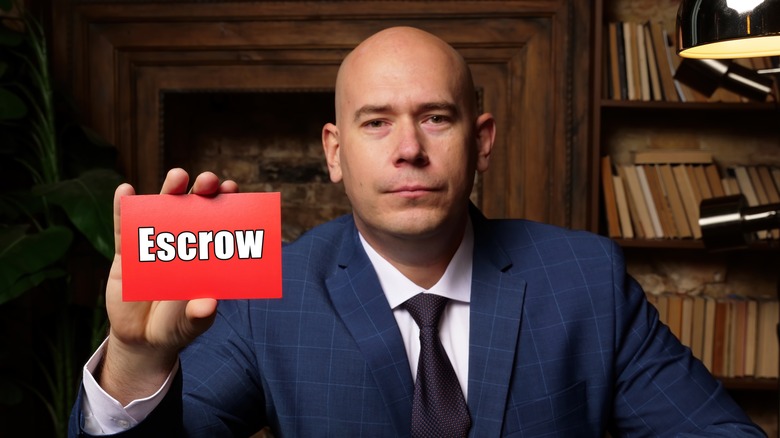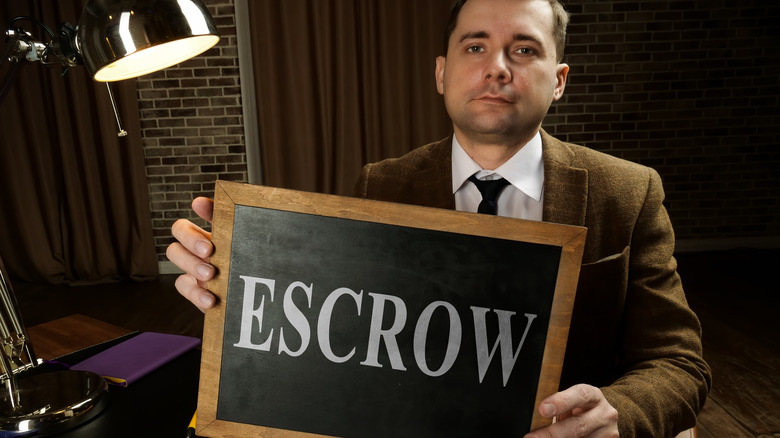Here's What An Escrow Officer Really Does
According to the Cornell Law School, an escrow officer is a third party that carries out various tasks throughout the escrow process, such as holding assets, documents, or money until a contract is signed between the parties involved in a real estate transaction.
We can all agree that this definition fits with what we generally understand upon hearing the term "escrow officer" — a middleman of sorts. But what does an escrow officer really do? What responsibilities are they obligated to carry out? What qualifications do they need to have?
These are all questions that we will discuss further in the article. If you are considering buying or selling a home or have already started the process, understanding the role of each individual you are going to be working with is very important. This will help all parties have a better understanding of the process, ensuring a smooth and timely transaction.
The responsibilities of an escrow officer
An escrow officer's main responsibility is to adhere to the escrow agreement. An escrow agreement can be unique to each transaction. We picked five of the most important responsibilities that are common to most real estate transactions, according to LendingTree.
The first is handling escrow funds. This involves depositing your EMF (Earnest Money Deposit) in what is known as an escrow account. Most financial institutions provide escrow services that include escrow accounts. An escrow officer is also in charge of handling various escrow-related documents. These include title commitments, property tax bills, and mortgage documents. Furthermore, they are obliged to let all parties know if any problems come up during a title search. Judgments or tax liens are not unusual to come up during a title search. Your escrow officer will also help you resolve these issues to facilitate a smooth transaction. They will work to keep all parties in the know regarding closing dates, avoiding unnecessary complications such as an expired rate lock.
Lastly, an escrow officer is responsible for closing escrow. This is essentially the end point of a real estate transaction when all involved parties have executed their respective legal obligations according to the agreement (via Rocket Mortgage). For the escrow officer, this means making sure all documents are signed correctly in accordance with state laws, disbursing closing funds, and finalizing the transfer of a property into the buyer's name.
What qualifications does an escrow officer have?
There are three main formal qualifications that an escrow officer is required to have — a high school diploma or GED, state escrow certification, and proven work experience, according to Betterteam. Escrow officers are also required to have advanced clerical knowledge and be able to read and decipher building blueprints and property maps. They need to have knowledge of legal codes, court procedures, and executive orders regardless of the fact that they don't offer legal advice. Additionally, as is with most professions, it is important for an escrow officer to be skilled in decision-making, have great communication skills, and have basic knowledge of computer and office software.
Furthermore, there is also a range of additional soft skills that a good escrow officer would ideally possess. According to Novoresume, time management, communications skills, adaptability, interpersonal skills, and attention to detail are among the top 10 soft skills employers look for in any profession — with good reason. These are all great soft skills for any job but are especially so for an escrow officer. Escrow officers are obligated to work with several different parties that may be new to the process of a real estate transaction. As such, a skilled escrow officer that is good at their job is essential for an uncomplicated and smooth transaction.


